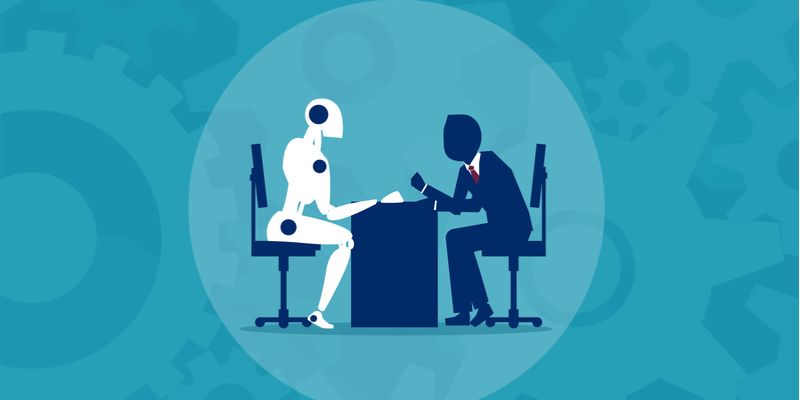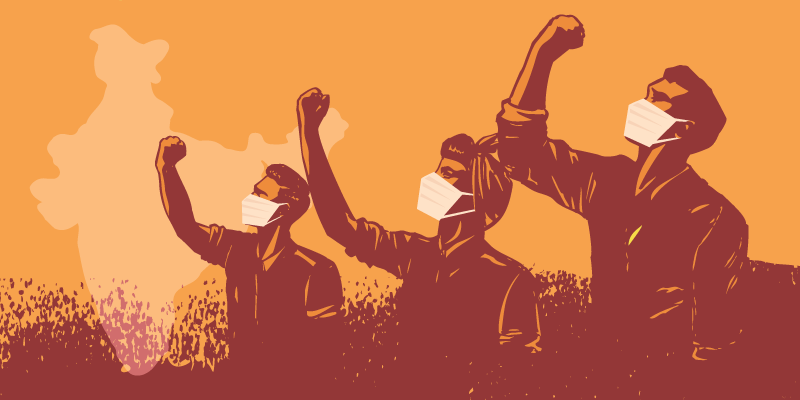Will humans compete with machines for jobs in the future?
Industrial revolution 4.0 is here, organisations need to embrace automation to stay relevant, and humans have to share their workspace with robots.

Living on the precipice of a revolution, Industry 4.0 has implanted insecurities and suspicion in the minds of people.
With AI taking over a huge number of tasks, will there be any work left for the humans? What happens when employers prefer artificial intelligence to human intelligence?
The disruptive nature of Artificial Intelligence (AI) and Robotic Process Automation (RPA) has given them a negative image of a villain that may render half the human population jobless.
However, let us look at it from a different perspective, the heroic side of it. The side that will help create innovative business lines, fascinating job roles, and improved and exciting job opportunities that were non-existent before the advent of automation.
The previous three industry revolutions have taught us that changes of this magnitude have always been beneficial to the working class by enhancing the quality of life and work.
Remember the introduction of personal computers and how shattering common belief created millions of jobs? Experts are sure that Industry 4.0 will be no different. Here, we will be exploring the promises and challenges of AI in respect with the future of work.
Progressively AI
The top players across various industries have already embraced AI to gain business value, economic growth, and creating innovative products. With advanced technical capabilities like machine learning, natural language processing, predictive analytics, and big data, we are already at the verge of realising self-driven cars, automated grocery checkouts, hyper-personalized retail experiences and so on.
Research on techniques like deep learning imbibed with artificial neural networks has helped businesses create enhanced value with personalised customer experiences, enhanced rate and precision in production, channelised supply chain, and secured transactions.
Today major businesses have identified AI and such advanced technologies as the go-to model to accelerate growth and create value. The possibilities with AI are endless, the more we explore the more vistas opens up, but does it have the ability to overthrow humans? I highly doubt that, yes humans may have to co-exist with machines but only to enhance human life and reduce toil.
Overcoming barriers
Even with Alexa and Siri being a part of our modern lifestyle, humans still feel perturbed with sharing space with machines. However, with the changing landscape, it becomes a mandate that humans and machines learn to co-exist.
The major barrier in accepting machines as co-workers comes with a lack of training and set guidelines. With trained professionals comes the knowledge of working with machines to use algorithms that can progressively improve productivity and quality.
Moreover, guidelines like GDPR can help overcome issues related to data privacy, wrong and uncontrolled use of sensitive information and security. In addition, to embrace automation, organisations need to undergo a major technology upgrade, which includes trained workforce, augmented technology and heightened process readiness.
Cognitive skills, creative thinking, and complex information processing will be the most sort out skills over the next decade leading to for major skill and education transformation. It is estimated that 2030, will witness an increased demand for high skill professionals accompanied by a steep rise in wages.
Inevitable skill shift
Industrial revolution 4.0 is here, organisations need to embrace automation to stay relevant, and humans have to share their workspace with robots.
With this fact, also comes the understanding that the jobs as we know today are going to change, many new roles will be created and some may completely vanish from existence. On the other hand, a major chunk of jobs will be altered to complement human-machine interactions.
According to a recent McKinsey report, only 5 percent of the jobs will be automated out of existence, but 10 percent more new jobs will be created by 2030.
The jobs susceptible to automation revolve around data collection and processing. The rate of certain skill sets being displaced depends upon the rate and pace of adoption of these modern technologies.
Organisations must implement and offer a dedicated skill set training, technology up gradation, increased cost of deployment and so on. The adoption may also vary across geographical locations based on economy, workforce, social norms and acceptance. Embracing AI will not only benefit business owners by minimising human labour and reducing human errors but also enhance individuals with a better lifestyle and an abundant economy.
AI enriched economy
The future of automation promises work for all, maybe more than humans can fill. However, it is imperative to train and educate the employees to meet these challenging job roles.
Governments should bring about new rules that should encourage private and public initiatives to invest more in human capitals. By harnessing the technologies, it is definitely possible to reap enormous benefits at both social and an economic level.
Automation and AI can help us create a productive and rewarding future with enhanced productivity, reduced manual efforts, and minimal errors. It will help us build competitive work environments, challenging job roles that come with satisfying compensations. It will also pave the way for evolved educational systems that focus on creative thinking and critical learning leading to better social status from economic surplus. Moreover, we can look forward to an economy with better regulatory practices that ensure privacy, security, and safety. Above all else, we can definitely look forward to a less labour-intensive economy.
AI is all about machines increasingly complementing and enhancing human productivity. To stay relevant, we just need to update and acquire new skills and accept machines as our co-workers.
The optimistic view on AI is more realistic as the previous industrial revolutions have proved. The fact remains that each industrial revolution opens a plethora of opportunities that can enhance lifestyle and change the way we work, the way we play, the way we heal and the way we learn. Let us learn to embrace change for a better future.
(Disclaimer: The views and opinions expressed in this article are those of the author and do not necessarily reflect the views of YourStory.)









![[Startup Bharat] Y Combinator-backed BeWell Digital is enabling the digital transformation of radiologists](https://images.yourstory.com/cs/2/40d66ae0f37111eb854989d40ab39087/ImagesFrames31-1648033042143.png)

